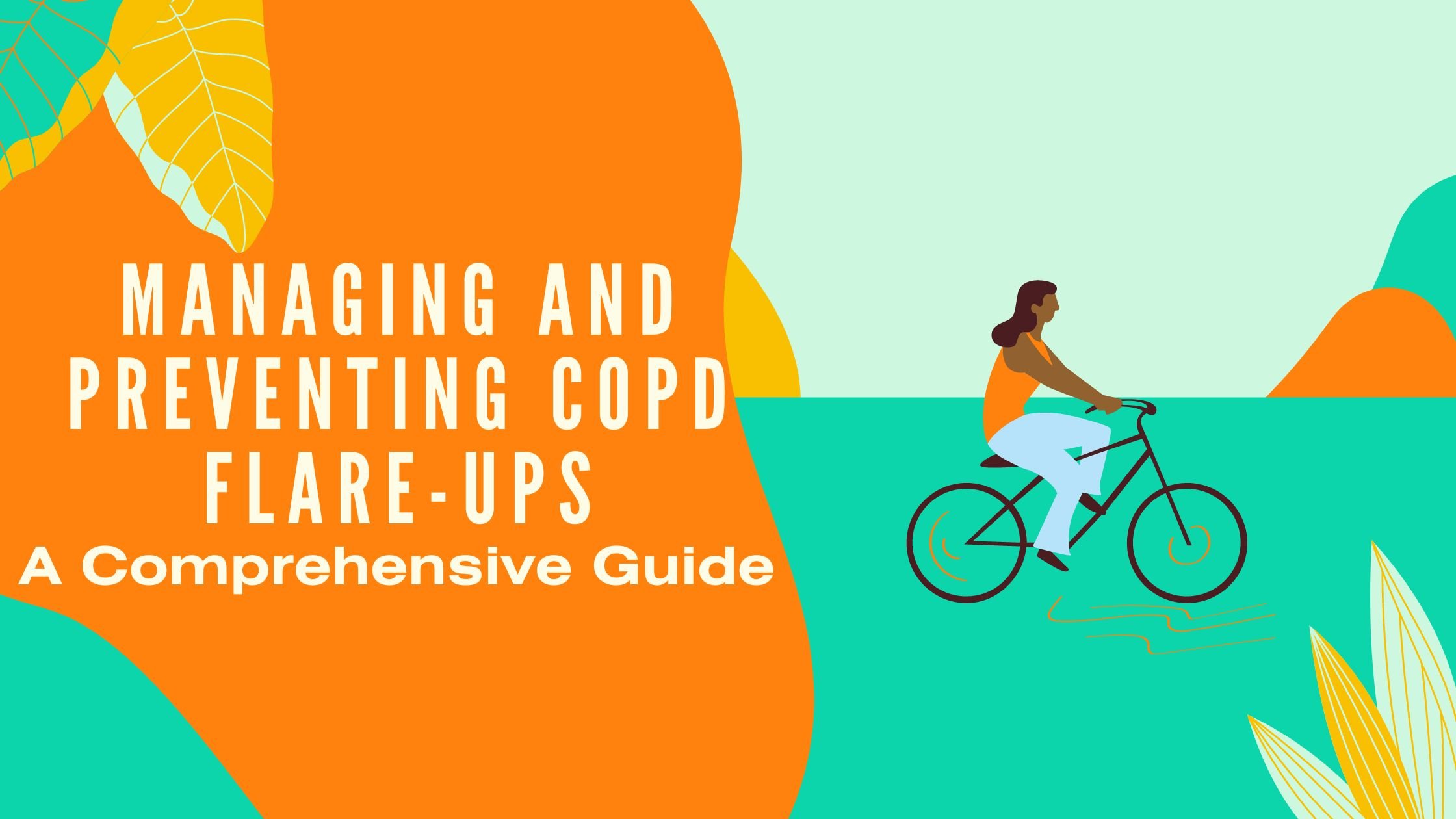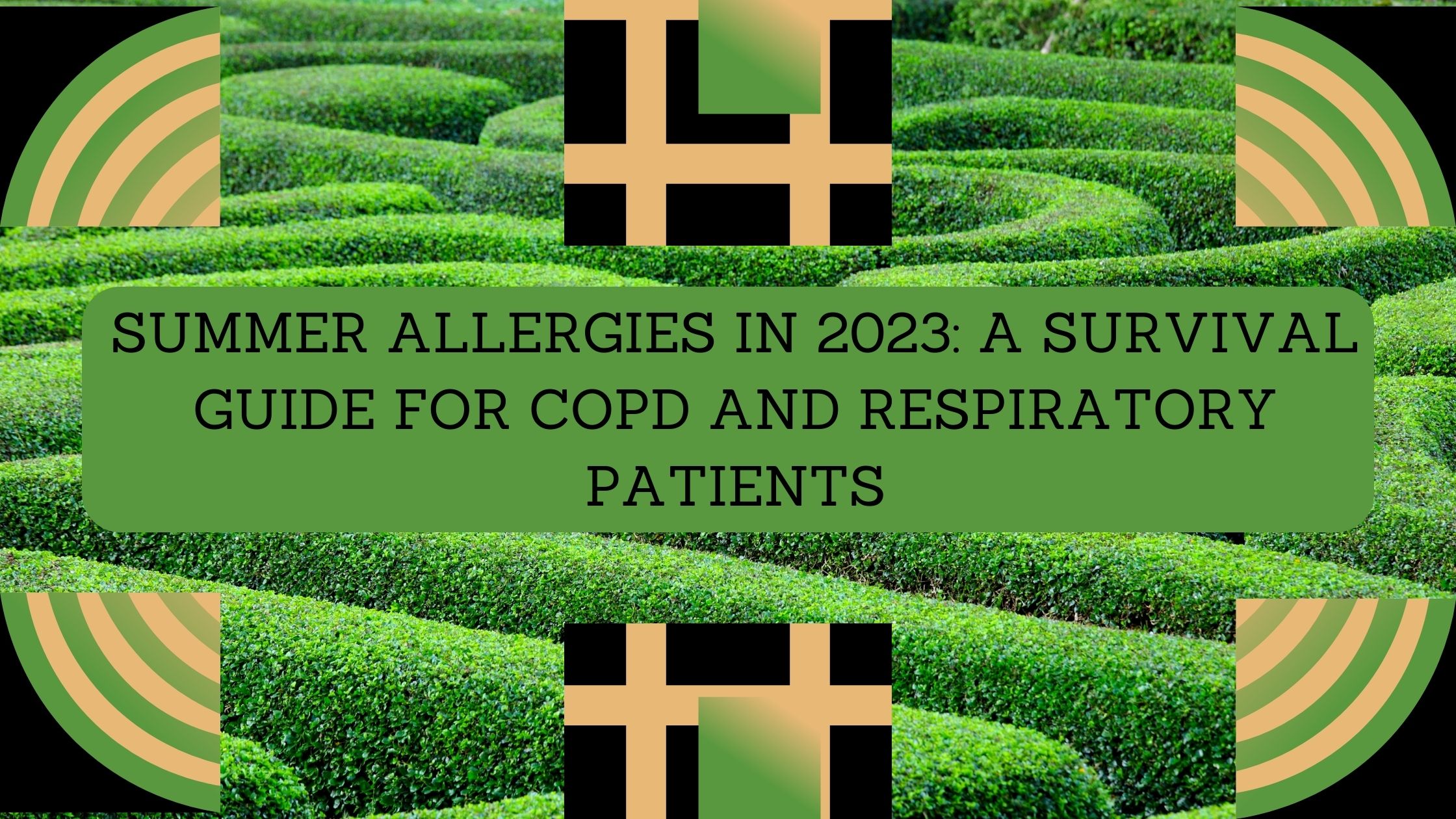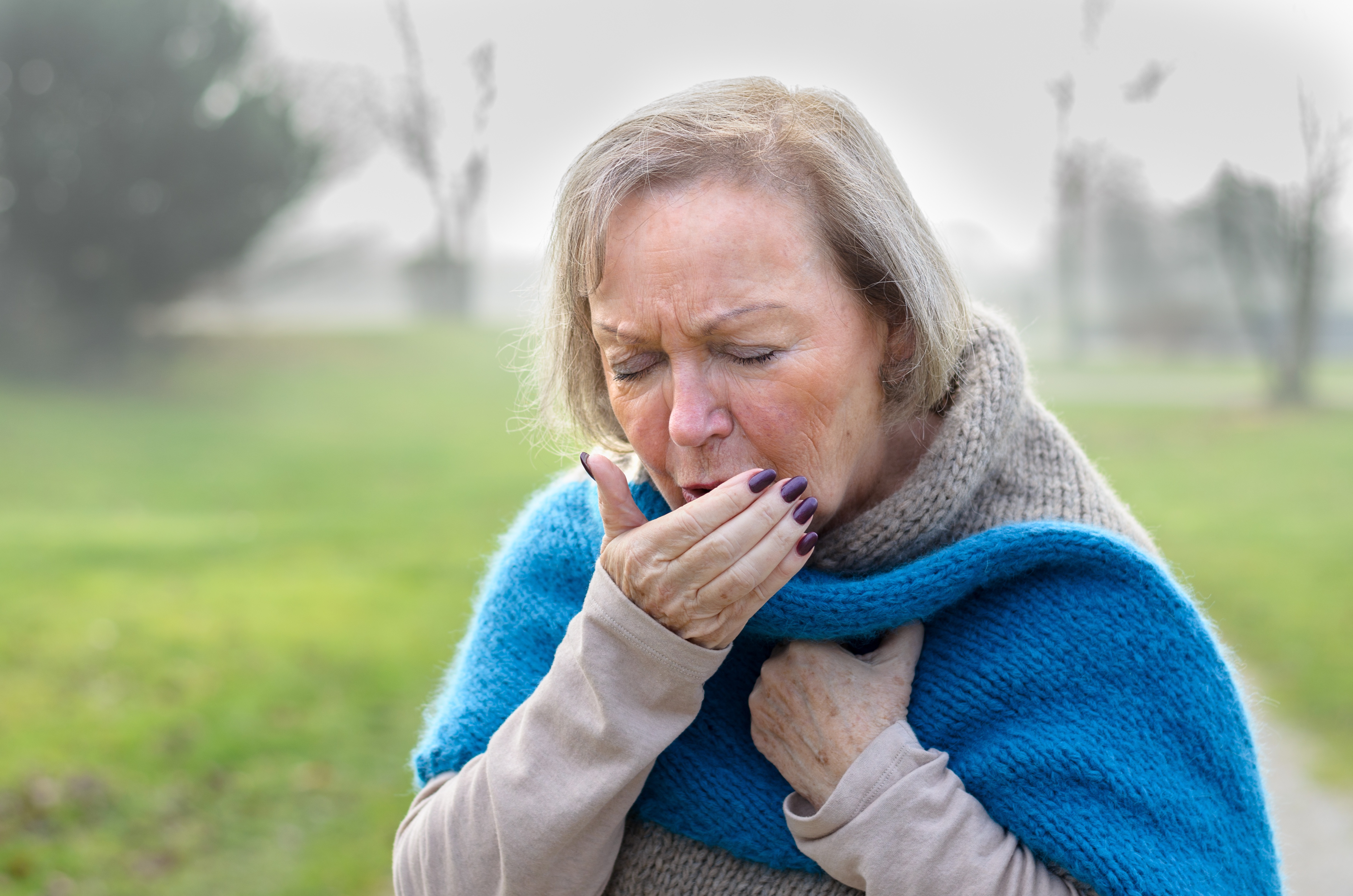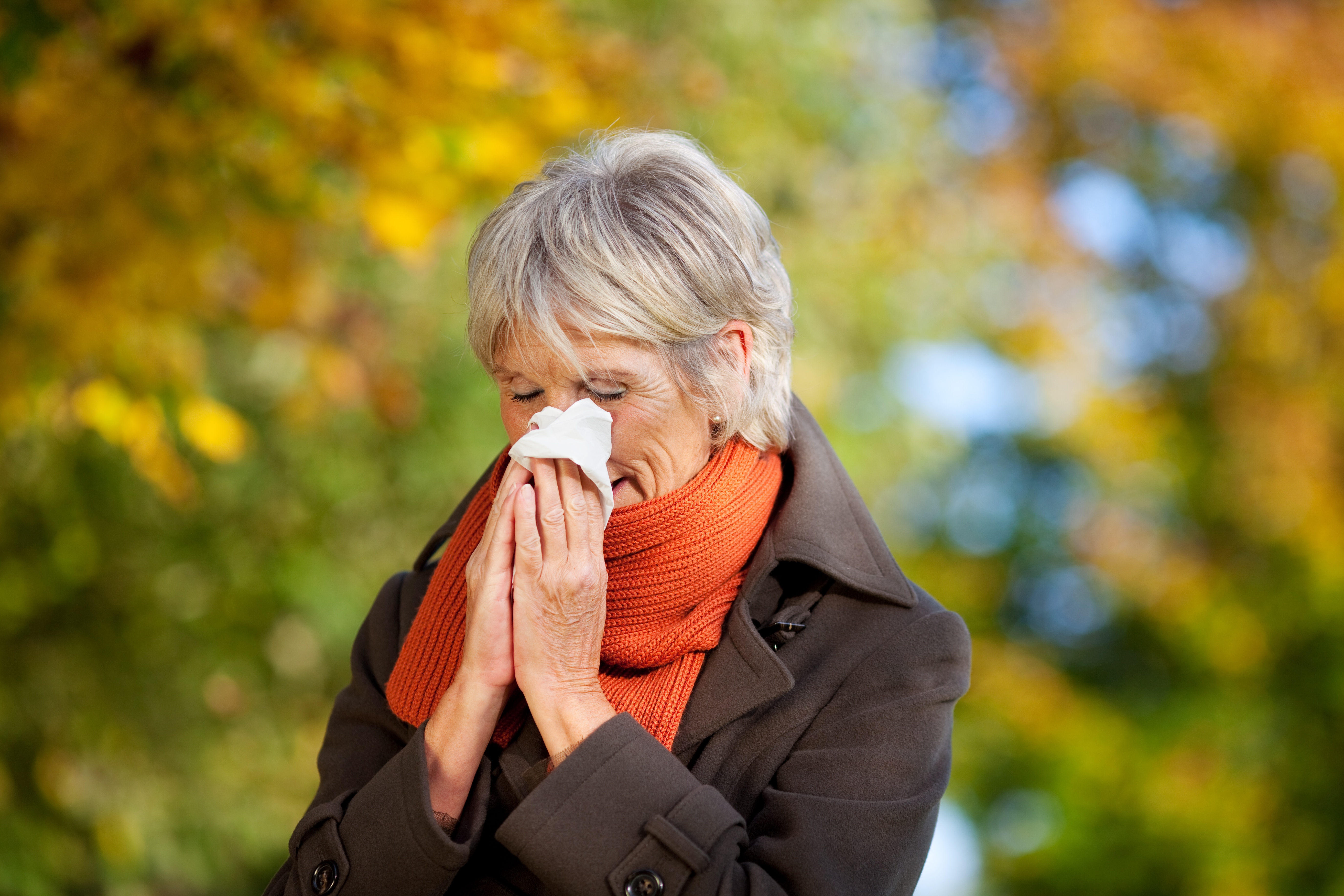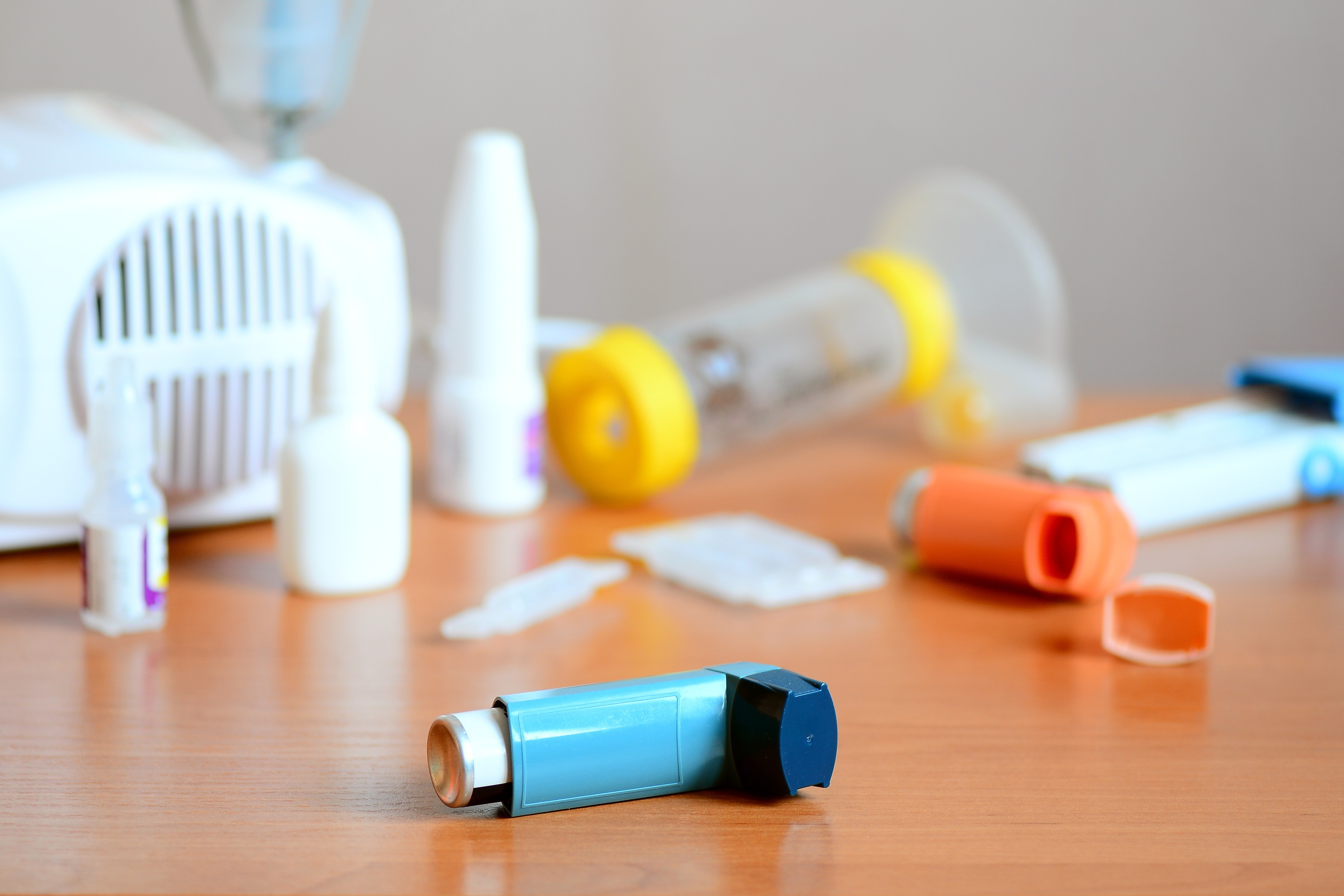Topics: COPD, COPD Treatment, Diet Tips, Disease Management, COPD Exacerbations
Managing and Preventing COPD Flare-ups: A Comprehensive Guide
Breathing, something most of us take for granted, becomes a daily battle for millions of individuals living with Chronic Obstructive Pulmonary Disease, or COPD.
This progressive lung condition, which encompasses chronic bronchitis and emphysema, imposes a profound impact on respiratory function, leading to persistent breathlessness, coughing, and a reduced quality of life. But within this challenging journey, there's a particular chapter that often stands out as a moment of stark vulnerability and uncertainty: the COPD flare-up.
Imagine a sudden worsening of symptoms, as if the very air you breathe has turned against you. A flare-up, also known as an exacerbation, can feel like a relentless storm, threatening to upend the fragile equilibrium you've worked so hard to establish. It's during these moments that the importance of education, preparedness, and proactive measures becomes strikingly evident.
In this comprehensive guide, we embark on a journey through the intricate landscape of COPD flare-ups. We delve into the nuanced art of recognizing early symptoms, mastering a personalized action plan, and effectively managing flare-ups when they occur.
But beyond this, we explore the equally vital terrain of prevention—how to fortify your defenses against future exacerbations through lifestyle changes, proper adherence to treatment plans, and the cultivation of a health-conscious environment.
The goal is not just to provide you with information but to empower you or a loved one living with COPD with the knowledge and strategies necessary to navigate this challenging condition. Together, we will uncover the science, practical tips, and the emotional resilience needed to manage and ultimately conquer the storms of COPD flare-ups.
So, let's embark on this journey—one that promises to shine a light on the path of managing and preventing COPD flare-ups, ensuring that you can breathe a little easier and live life to its fullest.
Understanding COPD Flare-ups
To effectively manage and prevent COPD flare-ups, it's imperative to grasp the nature of these exacerbations comprehensively. COPD flare-ups, often referred to as exacerbations, represent acute episodes where the symptoms of the disease worsen significantly beyond the individual's baseline.
These episodes can be alarming, disruptive, and potentially life-threatening, making a deep understanding of their triggers and mechanisms essential.
The Physiology of a COPD Flare-up
COPD flare-ups are primarily driven by the underlying pathophysiology of the disease, which involves two key components: chronic bronchitis and emphysema.
-
Chronic Bronchitis: In chronic bronchitis, the lining of the airways becomes inflamed and produces excessive mucus. This mucus can clog the airways, making it difficult to breathe. During a flare-up, this inflammation intensifies, and the increased mucus production can lead to acute bronchial obstruction, further impeding airflow.
-
Emphysema: Emphysema involves the gradual destruction of the air sacs (alveoli) in the lungs, reducing the surface area available for oxygen exchange. As a result, the lungs become less efficient at oxygenating the blood. During a flare-up, the damage to the alveoli is exacerbated, impairing oxygen delivery and causing heightened breathlessness.
Triggers of COPD Flare-ups
While the underlying pathology sets the stage for COPD flare-ups, various triggers can ignite these episodes:
-
Infections: Respiratory infections, particularly viral and bacterial infections like the flu or pneumonia, are common culprits. These infections lead to increased airway inflammation and mucus production.
-
Air Pollution: Exposure to air pollutants such as cigarette smoke, secondhand smoke, dust, and chemicals can exacerbate COPD symptoms. Air pollution irritates the airways, triggering inflammation and worsening airflow obstruction.
-
Weather Changes: Cold, dry air can be particularly challenging for individuals with COPD. It can cause airway constriction and increase the risk of flare-ups.
-
Non-adherence to Treatment Plans: Failing to adhere to prescribed medications and therapies can leave the airways vulnerable to inflammation and exacerbations.
-
Environmental Allergens: Allergens like pollen and mold spores can worsen COPD symptoms in susceptible individuals.
-
Physical Exertion: Overexertion, especially in individuals with advanced COPD, can lead to increased breathlessness and a higher risk of flare-ups.
Recognizing the Symptoms
The symptoms of a COPD flare-up can vary in intensity but typically include:
Increased Breathlessness: This is often the most prominent symptom. It can range from mild to severe, making even simple tasks challenging.
Persistent Cough: Coughing becomes more frequent and productive during a flare-up. The cough is often accompanied by increased mucus production.
Change in Mucus: The color and consistency of mucus may change, becoming thicker and darker.
Wheezing: Wheezing or a high-pitched whistling sound during breathing is common, indicating narrowed airways.
Chest Tightness: A feeling of constriction or pressure in the chest can occur, contributing to discomfort and anxiety.
Fatigue: Exacerbations are physically demanding, often leaving individuals feeling tired and weak.
The Importance of Early Detection
Recognizing the early signs of a COPD flare-up is crucial. Early intervention can often prevent the exacerbation from worsening to a critical stage. Regular monitoring of symptoms and close communication with your healthcare provider are key to swift responses.
In the following sections, we will explore in detail the steps to manage and prevent COPD flare-ups. These insights will empower individuals living with COPD and their caregivers to navigate the complexities of this condition with confidence and resilience.
Managing COPD Flare-ups
For those facing the daily trials of Chronic Obstructive Pulmonary Disease (COPD), each breath is a testament to resilience and strength. But within this journey, there are moments that test even the most unwavering resolve—COPD flare-ups. These episodes, characterized by a sudden and severe worsening of symptoms, can feel like an unrelenting storm in the otherwise delicate balance of managing this chronic condition.
In this dedicated section, we embark on a journey through the intricate landscape of COPD flare-ups. We delve deep into the science, symptoms, and triggers, aiming to unravel the mysteries that shroud these episodes. But more than that, we offer practical guidance, strategies, and a compassionate understanding of how to not only survive but thrive in the face of COPD flare-ups.
Our mission is to empower individuals living with COPD, their caregivers, and healthcare providers with the knowledge and tools to manage these challenging moments effectively. Together, we will explore the science behind flare-ups, the strategies to recognize them early, and the steps to regain control, ensuring that those touched by COPD can breathe a little easier and live life to its fullest.
1. Recognize Early Symptoms
Early detection of flare-ups is crucial. Pay attention to subtle changes such as increased breathlessness, persistent coughing, thicker mucus, wheezing, and chest tightness. Being attuned to these signs allows for prompt intervention.
2. Collaborate on an Action Plan
Work closely with your healthcare provider to create a personalized COPD action plan. This plan should include steps to take when symptoms worsen, which medications to adjust, and when to seek medical attention. Having a clear plan in place empowers you to manage flare-ups effectively.
3. Medication Adjustment
During a flare-up, your doctor may recommend stepping up the use of bronchodilators, which help open airways. Short-acting bronchodilators provide quick relief, while long-acting ones offer sustained benefits. Inhaled corticosteroids may be prescribed to reduce inflammation and mucus production.
4. Hydration and Humidification
Staying hydrated thins mucus, making it easier to clear your airways. Drink ample water, and consider using a humidifier to maintain optimal indoor humidity levels. Proper hydration supports overall respiratory health.
5. Breathing Techniques
Practice breathing techniques like pursed-lip breathing and diaphragmatic breathing. These techniques enhance lung function, reduce shortness of breath, and alleviate anxiety associated with flare-ups.
6. Rest and Activity Management
During a flare-up, prioritize rest to conserve energy. Avoid strenuous activities that might exacerbate symptoms. Balancing activity and rest prevents unnecessary strain on your lungs.
7. Monitor Oxygen Levels
Using a home pulse oximeter, regularly monitor your oxygen saturation levels. A significant drop indicates the need for medical attention. Early detection of low oxygen levels can prevent complications.
8. Consult Your Doctor
If symptoms worsen or don't improve with medication adjustments, consult your healthcare provider promptly. They can evaluate your condition and recommend appropriate interventions, preventing further deterioration.
Preventing COPD Flare-ups
1. Adherence to Treatment Plans
Consistently follow your treatment plan, including medication schedules and recommended lifestyle changes. Regular use of maintenance medications helps stabilize your condition and reduce the risk of flare-ups.
2. Avoid Triggers
Identify and avoid triggers such as tobacco smoke, air pollutants, and allergens. Minimizing exposure to irritants reduces the likelihood of exacerbations.
3. Vaccination
Stay up-to-date on vaccinations, including annual flu shots and pneumonia vaccines. Vaccinations protect you from infections that can trigger flare-ups.
4. Engage in Regular Exercise
Participate in a pulmonary rehabilitation program or engage in gentle, regular exercises. Exercise improves lung capacity, enhances cardiovascular fitness, and supports overall well-being.
5. Healthy Lifestyle
Maintain a balanced diet, manage your weight, and effectively control other health conditions like hypertension. A healthy lifestyle positively impacts COPD management.
6. Respiratory Hygiene
Practice good hand hygiene, avoid close contact with sick individuals, and keep your living environment clean. These measures reduce the risk of infections that can lead to flare-ups.
7. Clean Air Environment
Ensure your living space has good air quality. Use air purifiers if necessary, and ensure proper ventilation to minimize exposure to indoor pollutants.
8. Regular Medical Check-ups
Frequent visits to your healthcare provider allow them to monitor your COPD and make necessary adjustments to your treatment plan. Open communication ensures your management strategies remain effective.
Conclusion
In the labyrinth of life with Chronic Obstructive Pulmonary Disease (COPD), we've journeyed through the formidable terrain of managing and preventing flare-ups. We've delved into the depths of understanding this chronic condition, the intricacies of exacerbations, and the strategies that empower you to master these challenging moments. As we conclude our exploration, it's essential to reflect on the resilience, knowledge, and hope that guide us forward.
For individuals living with COPD, every breath is a testament to your enduring spirit. The journey is not always easy, but it is one marked by strength, determination, and the unyielding will to reclaim the vitality of life. The knowledge you've gained here, the insights into recognizing early symptoms, crafting personalized action plans, and embracing a proactive approach to prevention, are your tools for navigating this complex path.
It's crucial to remember that you are not alone. Whether you're facing the daily challenges of COPD or weathering the storm of a flare-up, there is a community of individuals, caregivers, and healthcare providers ready to support you. Reach out, share your experiences, and seek guidance when needed. The power of collective wisdom and compassion is immeasurable.
As we part ways, let's carry forward the understanding that COPD, while demanding, does not define you. You are more than your diagnosis. Your strength, resilience, and the love and support of those around you define your journey. Embrace the tools and knowledge you've gained, and remember that every day is a new opportunity to live life to its fullest.
May you breathe freely, find joy in each moment, and continue to inspire others on their own COPD journey. Together, we face the challenges, celebrate the victories, and navigate this intricate landscape with courage and grace.
Topics: COPD, COPD Treatment, COPD Exacerbations, copd tips
Summer Allergies in 2023: A Survival Guide for COPD and Respiratory Patients
Topics: Disease Management, COPD Exacerbations, copd tips
Music Therapy Proves Beneficial for Respiratory Disease.
Topics: COPD Treatment, COPD Exacerbations, Lung Health
One of the symptoms of COPD is a persistent wet cough. Some coughing is part of the condition and is necessary to help keep passageways clear but there may be other factors that are contributing to your cough.
Topics: COPD, COPD Exacerbations, Lung Health
The days are getting a little bit longer and the weather is getting a little bit milder. Color is starting to appear on the ground and leaves are starting to sprout on the trees. Despite the fact that it's still cold in some parts of the country, there's no doubt that spring has sprung for 2018. Spring can be a beautiful time of year but for COPD patients, increased pollen and other allergens in the air means increased risk of exacerbation. A study conducted at prestigious, Johns Hopkins showed that those with COPD or other chronic respiratory conditions were at risk for exacerbation following a histamine, or allergy attack.
Topics: COPD, COPD Exacerbations, Lung Health
For those diagnosed with Chronic Obstructive Pulmonary Disease (COPD), summer seems to have flown past and fall could not have come any quicker, and now winter is upon us. Many people suffer from springtime allergies but from late summer to late fall, weeds pollinate and become a larger producer of inhaled allergens along with mold spores. Seasonal allergies during the fall and winter are quite common.
Topics: COPD, COPD Exacerbations
Topics: COPD, COPD Exacerbations

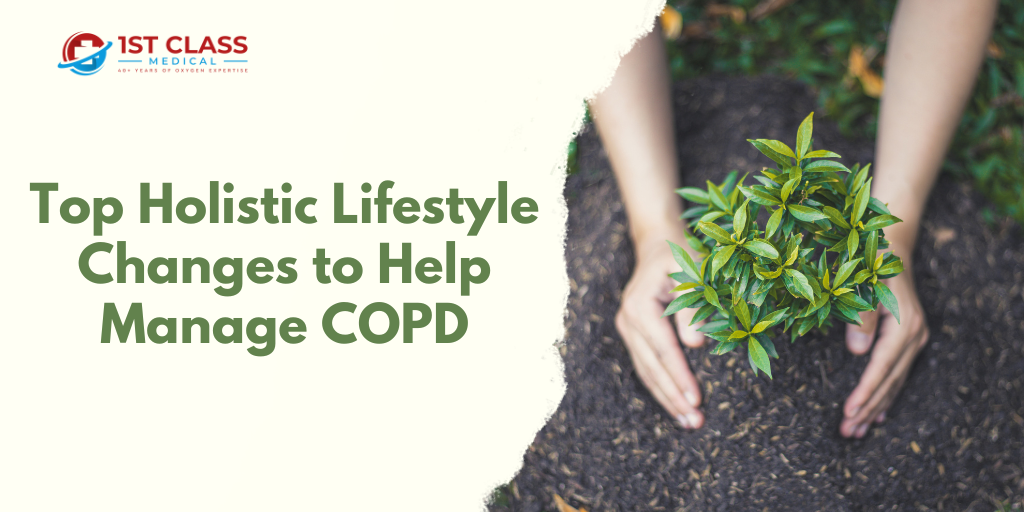

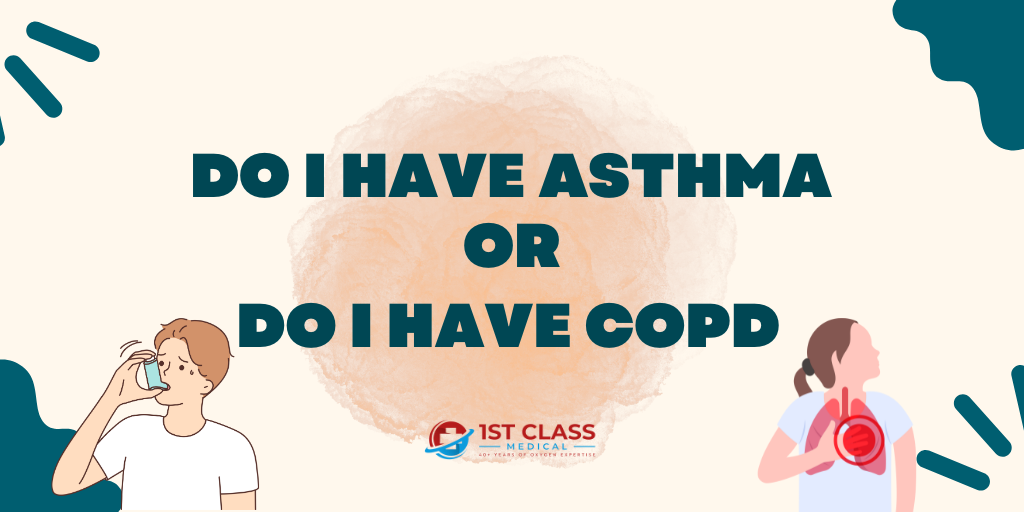

- Understanding the 4 Stages of COPD
- Top 4 Continuous Flow Portable Oxygen Concentrators
- Over the Counter Oxygen Canisters: Do They Work?
- The Best Portable Oxygen Concentrators of 2024-2025
- 13 Simple Strategies You Can Use TODAY To Help You Prevent And Manage COPD Exacerbations
- Understanding Your Spirometry Test Results
- What Do I Need to Buy a Portable Oxygen Concentrator?
- 3 Ways To Get a Return Investment on Your Portable Oxygen Concentrator
- How to Perform a Hard Reset on Your Portable Oxygen Concentrator
- Humidifier for Oxygen Therapy: When Should You Use One?
Lists by Topic
- COPD (121)
- portable oxygen concentrators (64)
- COPD Treatment (52)
- Disease Management (41)
- portable oxygen (34)
- oxygen therapy (30)
- COPD Exacerbations (26)
- traveling with oxygen (15)
- Respiratory Disease (11)
- Diet Tips (10)
- Lung Health (10)
- Quit Smoking, (10)
- home oxygen concentrators (10)
- pulse flow (9)
- continuous flow (8)
- traveling with a portable oxygen concentrator (8)
- Mobility (7)
- oxygen concentrator accessories (7)
- Arya Airtivo Max (6)
- Emphysema (6)
- SeQual eQuinox (6)
- Sleep Apnea (6)
- copd tips (6)
- oxygen concentrators (6)
- Inogen (5)
- smallest portable oxygen concentrator (5)
- AirSep (4)
- Arya P5 Portable Oxygen Concentrator (4)
- Depression (4)
- Insurance and Medicare Coverage (4)
- Respironics SimplyGo (4)
- SeQual (4)
- Stress Management (4)
- helpful hints (4)
- nutrition (4)
- oxygen safety (4)
- portable oxygen concentrator reviews (4)
- pulmonary rehabilitation (4)
- AirSep Focus (3)
- AirSep FreeStyle 5 (3)
- COPD medication (3)
- Cystic Fibrosis (3)
- Inogen One G4 (3)
- Inova Labs (3)
- LifeChoice Activox Sport (3)
- Respironics (3)
- breathlessness (3)
- lightest portable oxygen concentrator (3)
- oxygen concentrator maintenance (3)
- pulse flow portable oxygen concentrators (3)
- AirSep FreeStyle (2)
- Exercise (2)
- F.A.Q.'s (2)
- Helping Heroes (2)
- Helping Heroes Fund (2)
- Inogen One G3 (2)
- Invacare (2)
- LifeChoice Activox (2)
- O2-Concepts (2)
- Oxlife Independence (2)
- SeQual Eclipse 5 (2)
- asthma (2)
- breathing exercises (2)
- caire freestyle comfort, (2)
- copd diagnosis (2)
- heart failure (2)
- inogen one G5 (2)
- insomnia (2)
- mobility aids (2)
- pulse oximeter (2)
- respiratory illness (2)
- stem cell (2)
- unboxing portable oxygen concentrator (2)
- wellness (2)
- Arya Go (1)
- Arya Q (1)
- Arya portable oxygen concentrator (1)
- Coronavirus (1)
- Events (1)
- Heart Health (1)
- ILD (1)
- Inogen One G2 (1)
- Interstitial Lung Disease (1)
- Invacare Platinum Mobile (1)
- Invacare SOLO2 (1)
- Invacare XPO2 (1)
- LifeChoice Activox Pro (1)
- Nasal Cannulas (1)
- Pulmonary Fibrosis (1)
- Rhythm P2 S3 Portable Oxygen Concentrator (1)
- Share Your Story (1)
- anxiety (1)
- bathing with copd (1)
- blog (1)
- bone loss (1)
- breathlessness anxiety cycle (1)
- buy back program (1)
- caregivers (1)
- cleaning (1)
- clinical trials (1)
- copd screening (1)
- drug interaction (1)
- flooding (1)
- how to process (1)
- immune system, (1)
- lung cancer (1)
- mind body connection (1)
- oxlife liberty 2 (1)
- oxygen expenses (1)
- pets (1)
- portable oxygen concentrators for rent (1)
- prescription (1)
- safety (1)
- save money on concentrators (1)
- sleeping (1)
- spirometry (1)
- staying healthy (1)
- tax deductions (1)
- trade-in program (1)
- vaccines (1)
- weight gain (1)


